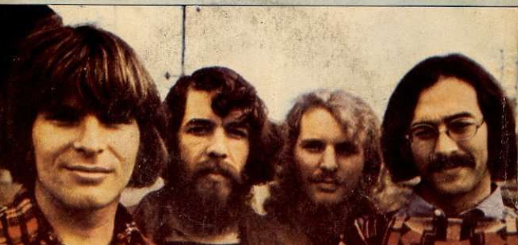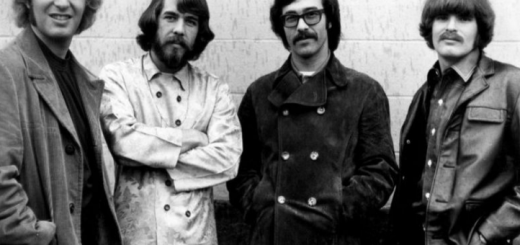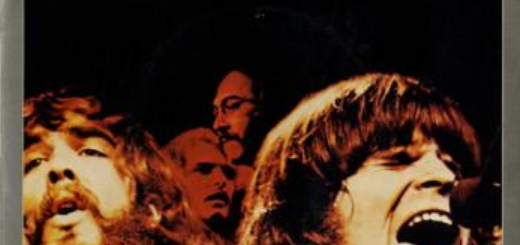Run Through the Jungle by Creedence Clearwater Revival Lyrics Meaning – Unveiling the Veil of Timeless Allegory
- Music Video
- Lyrics
-
Song Meaning
- The Devil’s On The Loose: Exploring Paranoia and the Social Consciousness of the ’70s
- Two Hundred Million Guns Are Loaded: A Commentary on America’s Gun Culture
- Thunder Magic Spoke: The Call for Wisdom Amongst the Chaos
- Unearthing the Hidden Message: Beyond Vietnam and Into the Heart of America
- Don’t Look Back to See: The Haunting Echoes Of Memorable Lines
Lyrics
Lord, it’s all so true
They told me, don’t go walking slow
The devil’s on the loose
Better run through the jungle
Better run through the jungle
Better run through the jungle
Whoa, don’t look back to see
Thought I heard a rumblin’
Calling to my name
Two hundred million guns are loaded
Satan cries, “Take aim”
Better run through the jungle
Better run through the jungle
Better run through the jungle
Whoa, don’t look back to see
Over on the mountain, thunder magic spoke
Let the people know my wisdom
Fill the land with smoke
Better run through the jungle
Better run through the jungle
Better run through the jungle
Whoa, don’t look back to see
In the labyrinth of classic rock anthems, the echoing beats of ‘Run Through the Jungle’ by Creedence Clearwater Revival (CCR) resonate with urgency and mystery. At first listen, it’s an auditory sprint through chaos and fear. But there’s more, embedded within John Fogerty’s gravelly timbre and the band’s swamp rock rhythms, lies a rich layer of allegory and cultural reflection.
Dissecting this 1970 hit not just as a product of its time but also as a prophetic dialogue with the future, we uncover themes that remain alarmingly relevant. As we unpack the metaphoric density of this rock masterpiece, the lines between lyrical poetry and historical commentary blur, revealing a song that speaks not only of its era but also to the timeless human condition.
The Devil’s On The Loose: Exploring Paranoia and the Social Consciousness of the ’70s
‘They told me, don’t go walking slow, the devil’s on the loose’ is not just a cautionary line but a window into the psyche of an era marred by political anxiety and civil unrest. The devil as metaphor unveils the nation’s collective paranoia, a reference likely twofold: to the intensifying Cold War tensions and the domestic terror of forces challenging a status-quo—whether they be political activism or darker societal elements.
CCR encapsulates the sense of survival, suggesting a landscape where danger is omnipresent, and the only solution is to ‘run through the jungle.’ This jungle, while literal in its evocation of the band’s Southern rock sound, is symbolic of a society navigating the treacherous terrain of moral and ideological warfare.
Two Hundred Million Guns Are Loaded: A Commentary on America’s Gun Culture
The thundering line ‘Two hundred million guns are loaded’ stands as a stark emblem of America’s fraught relationship with firearms. Beyond a mere statistic, it grips the listener with a sense of impending doom. In an era when the nation was wrestling with the implications of gun violence, CCR’s choice of imagery confronts the listener with both the scale and the intimacy of this cultural phenomenon.
Satan’s command to ‘Take aim’ can be interpreted as a chilling nod to the manipulation and mobilization of the public for violent ends. It’s as if the song captures the moment just before a collective trigger is pulled, underscoring the unsettling readiness with which society is armed and influenced.
Thunder Magic Spoke: The Call for Wisdom Amongst the Chaos
‘Over on the mountain, thunder magic spoke’ can be perceived as a cry for enlightenment and clarity amidst confusion. The seeking of ‘wisdom’ suggests a desperate need for guidance and understanding to navigate through the metaphorical jungle of the times.
In calling for wisdom to ‘let the people know’ and to ‘fill the land with smoke,’ there’s an invocation of primal and elemental forces as conveyors of truth. The concept of smoke as both obscuring and revealing serves as a compelling metaphor for the process of societal revelation and transformation.
Unearthing the Hidden Message: Beyond Vietnam and Into the Heart of America
While often mistaken as a direct reference to the Vietnam War due to its contemporary context and the use of jungle imagery, Fogerty himself has clarified that the song is an allegory for the proliferation of guns in the U.S. Nonetheless, the song’s atmosphere and metaphorical language lend it a war-like tension that is inescapably resonant with Vietnam, which at the time had become America’s searing ‘jungle’ conflict.
Yet, to limit the song’s purview to Vietnam alone is to overlook its broader critique of American anxieties, politics, and the darkness lurking beneath domestic fronts. ‘Run Through the Jungle’ serves as a reminder that the roots of conflict often lie close to home, woven within the fabric of national identity.
Don’t Look Back to See: The Haunting Echoes Of Memorable Lines
The recurrent exhortation to ‘Better run through the jungle’ paired with the ominous ‘Whoa, don’t look back to see’ pierces the listener with a sense of irreversible urgency and the dread of pursuit. In these lines, there’s a resonance with the classic mythological warning against looking back – a warning that perhaps reflects on the dangers of nostalgia or the perils of dwelling on the horrors of the past.
In the ‘Whoa, thought it was a nightmare, Lord, it’s all so true’ opening, a surreal and fantastical dread is anchored in vivid realism. It’s a wake-up call that the jungle of fear, violence, and uncertainty isn’t mere fantasy. It’s a haunting landscape that continues to chase us, half a century later, as we ponder whether the lessons of yesterday have truly been learned.








